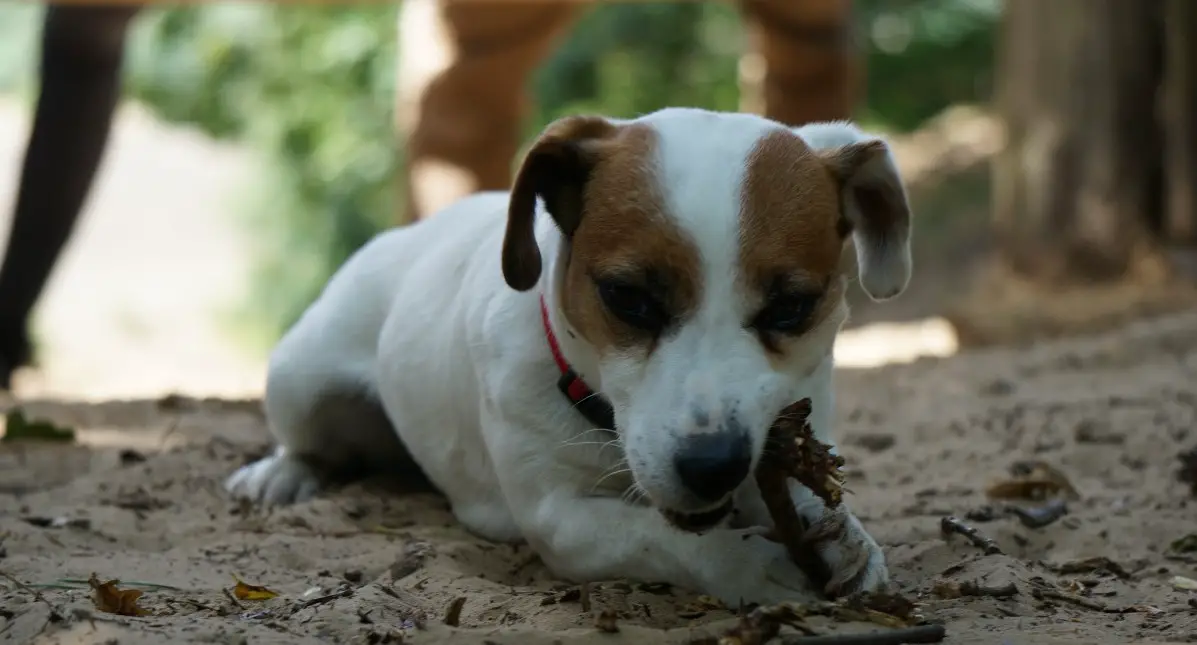Table of Contents
So you’ve decided you need a Jack Russell. Or perhaps that you need another one. It happens! Are you ready for a puppy? Or would an older dog suit you better? Where can you look for your (next) JRT? And, if you decide on a puppy, how can you make sure you’re doing things right?
*This post may contain affiliate links. As an Amazon Associate we earn from qualifying purchases.
Adopting a puppy vs. adopting an older dog
There’s a lot to be said for adopting an adult, or even a senior dog. And if you’re looking at Jack Russells, then even a middle-aged adult dog has a lot of good years ahead of them.
Adult dogs aren’t likely to chew up your slippers. They know the potty isn’t inside your house, and more often than not, they can hold it a while. An adult dog can be
But who can resist a puppy?
The manic energy, the fact that this puppy is yours and has never belonged to another, the chance to shape and mold your dog from the beginning
Not to mention that Jack Russell puppies are outrageously adorable.
Where the Puppies Are
When a lot of folks think about bringing home a specific breed of puppy, they think about a breeder. There are a lot of excellent breeders that can introduce you to the next dog of your heart. But you can find puppies through rescues, as well.

The important thing, though, is to deal with reputable people. Because unscrupulous breeders — and suboptimal rescues — do exist.
How to find the best breeder
What is a responsible breeder? A responsible breeder is interested in making money, sure. They’re business owners, too. But a few things separate an ethical breeder from backyard breeders and puppy farms.
First, an ethical breeder is concerned with the health and welfare of their dogs. This means that they treat their breeding bitches well, and don’t overbreed them. Ethical breeders limit each bitch to one litter per bitch per year, and won’t breed any given bitch more than four times. And if things don’t work out for you and your pup, an ethical breeder will ask that you return your puppy to them.
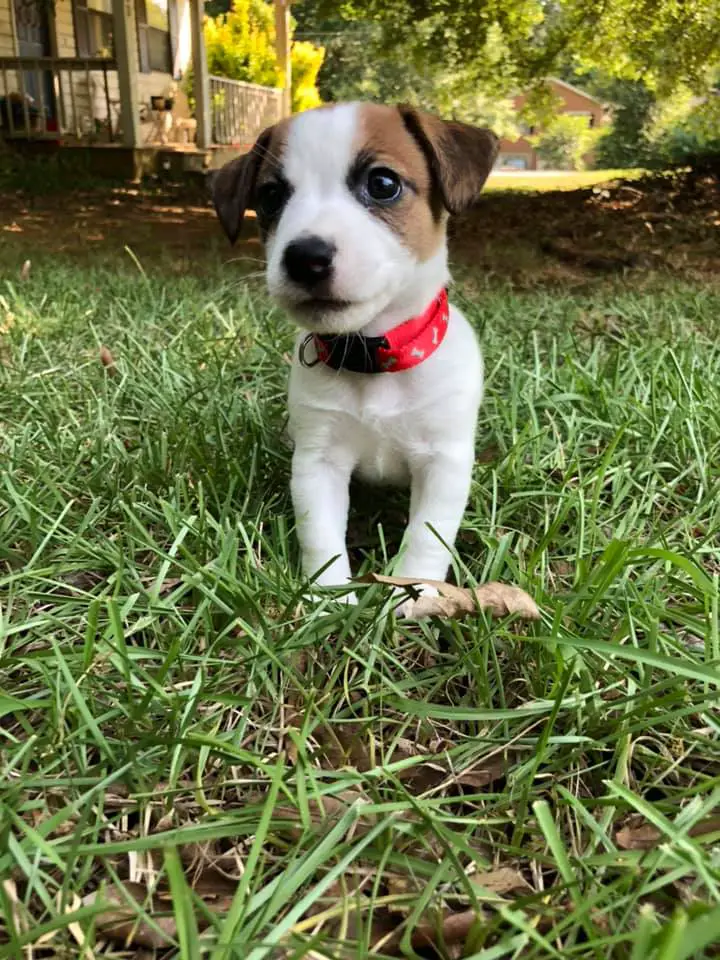
It also means that they take steps to guarantee healthy puppies. This includes keeping detailed health records for all their dogs and working with a vet. Many will even have a vet on staff. They will also provide genetic screenings and a health guarantee for your puppy.
An ethical breeder is transparent. They keep clean facilities and are happy for you to tour them. They can give you a health certification and genealogy certificates for your puppy’s ancestors.
Finally, a good breeder has the best interests of the breed in mind. They maintain contacts with breed clubs and organizations, and work for the good of all Jack Russell terriers.
How to find a good rescue
Rescues are always a good choice, and many of them have puppies from time to time. If you’re looking for a new JRT puppy, then your local Jack Russell rescue may well be able to hook you up.
But, like breeders, there are good rescues and not-so-good ones. Bad rescues? How can that be?
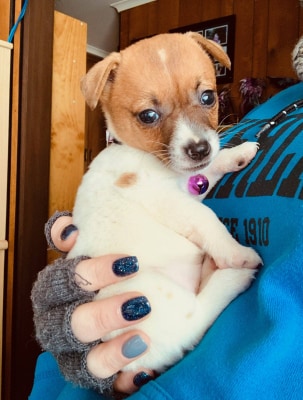
Well, breeders are regulated by the Animal Welfare Act. Rescues, on the other hand, are not. And though “bad” rescues are more often the result of overstretched resources than bad intentions, the effects can be equally bad.
So, how can you tell the difference?
First, a reputable rescue has
A good rescue is also transparent. They should be happy for you to visit, and ready and willing to answer your questions thoroughly and competently. They should also be ready to show you their animals’ health and veterinary records.
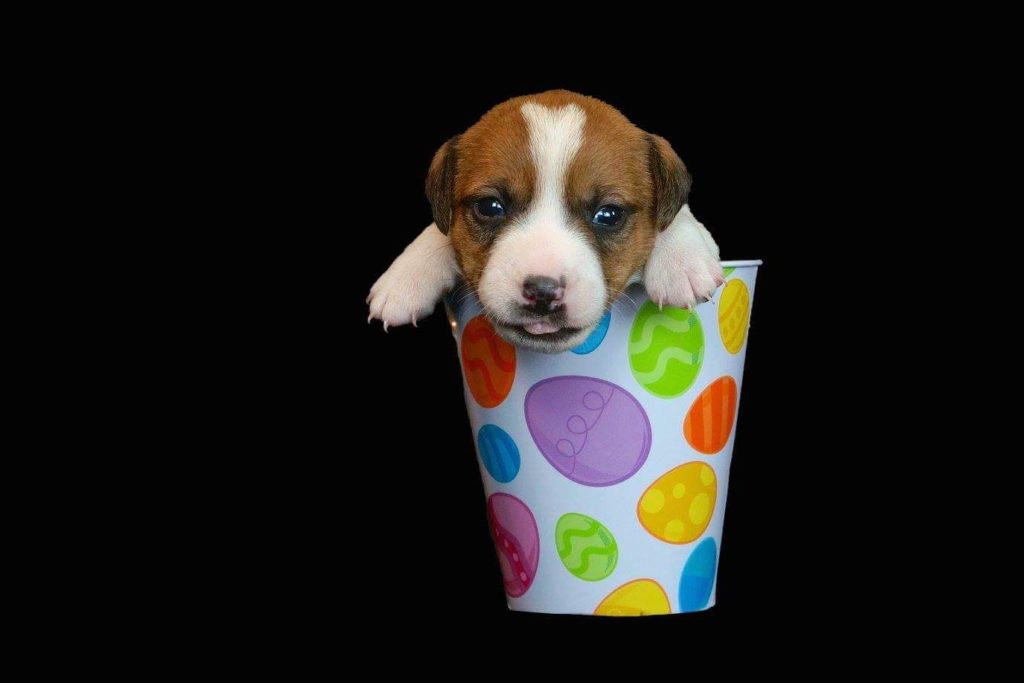
Excellent rescues work with their animals to ensure that every adoptive home is a forever home. They may provide basic obedience and crate training, for example. They might also do behavioral work with animals that need it. And many of them will ask you to return your adopted animal to them in the event that you can’t keep them.
Finally, a great rescue should be concerned that their dogs are going to a good home. Expect a home check, and possibly a request for references. This shows that the rescue cares about their animals even after those animals are adopted.
Bringing Your Puppy Home
You’ve decided on a JRT. But is your home terrier-ready?
Are you ready for digging, jumping, howling mayhem?
Can you give your Jack the exercise he or she will need? Do you know how to tell when they need it?
One of the biggest reasons Jack Russell Terriers end up in rescues and shelters is that their owners aren’t thinking beyond the cute.
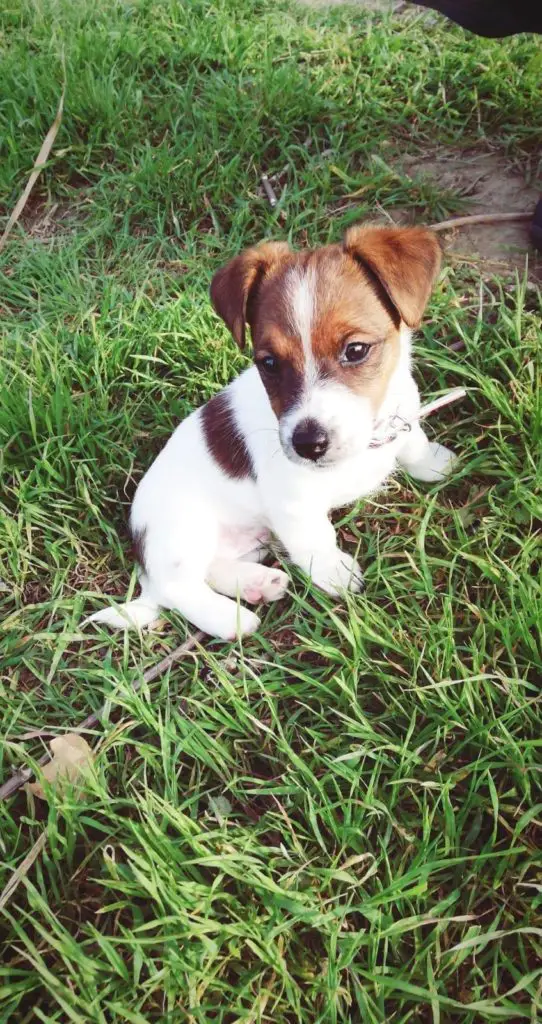
JRTs are feisty, athletic and can be barky. Their prey drive is often in overdrive, which means that many of them love to chase cats and other smaller animals. And if they catch them, the results can be sad.
If you don’t expect these things and have a plan for dealing with them, you might find yourself blindsided.
So be aware, and prepare.
Health
So, now you have your puppy. What’s the first thing you’re going to do? Cuddle? Post a picture? Throw that ball?

Well, OK, there’s no doubt that the first thing you want to do is cuddle that pup and boop that nose.
But what about after that?
Vaccinations
There are a lot of nasty bugs out there. It’s important to protect your pup. But which vaccinations do you need? And when?
Your vet can give you a detailed vaccination schedule, but here are the broad strokes.
First, no vaccinations until your puppy is weaned. If your pup comes from a breeder or a rescue, this won’t be an issue. But if it’s your dog’s puppies, keep this in mind.

Pups usually get their first shots between six and eight weeks of age. They receive shots every two weeks or so until they are fourteen weeks old.
Next, know the must-haves. These will protect your pup from the worst doggy diseases. What are they? Parvovirus, rabies, distemper, and hepatitis.
Some shots protect against a single disease. Others protect against several. The DHLPPC, for example, helps to keep your pup safe from distemper, hepatitis, leptospirosis, parainfluenza, parvo
Your pup may also receive both an initial shot and a booster for different di
When your pup gets older, kennels, boarding facilities, and doggy day care centers may require proof of vaccination, so keep those records handy.
Worming
If you have a puppy, intestinal parasites are a part of life. Some puppies are even born with worms that they contract from the placenta, or later from their mother’s milk.

Some of the more common worms include roundworm, hookworm, and coccidia.
Sports and musculoskeletal development
With an athletic dog like the JRT, it’s tempting to get them started in sports right away. If nothing else, it’s a great way to burn off some of that excessive Jack Russell energy.
But too much too soon can hurt your pup. Vets recommend to hold off on running with your dog until they’re at least eight months old. Otherwise, you risk permanent damage to their developing joints.
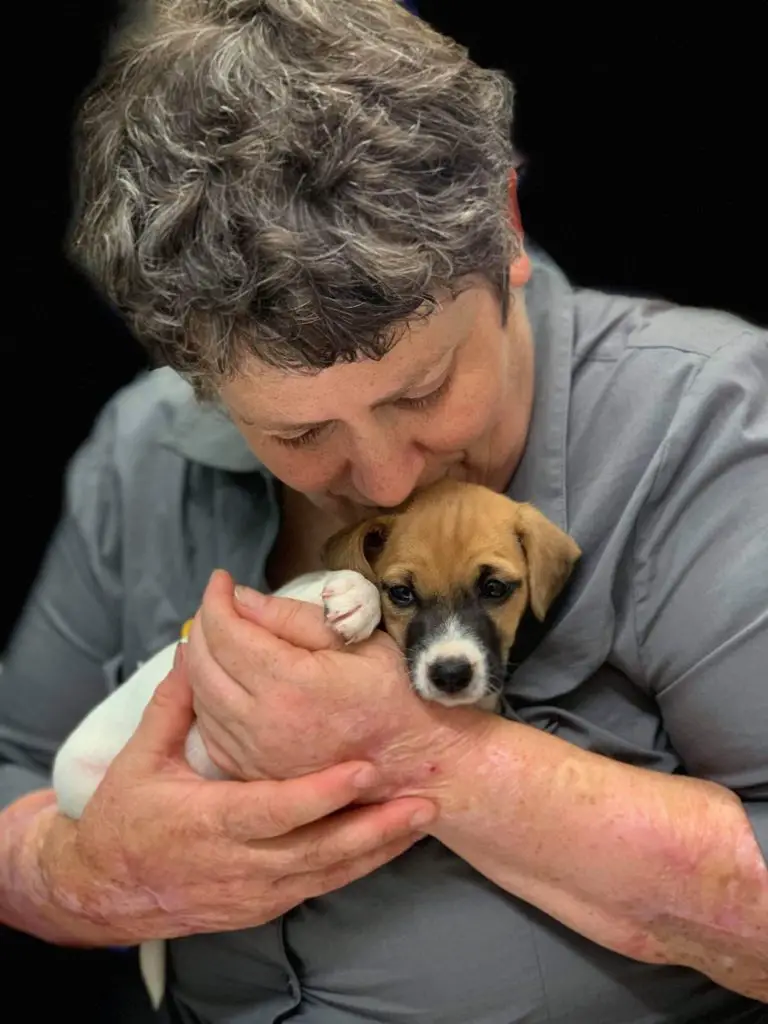
But that doesn’t mean you can’t throw the ball, chase the stick, and play other fun games! I don’t think your puppy would put up with that!
And brain games are good for dogs of any age!
Puppy Behaviors
Puppies are adorable. But they’re also mischievous! And sometimes mischief can develop into destructive habits.
Fortunately, there are ways of making sure that one doesn’t turn into the other.
Chewing
Puppies are famous for chewing. And a lot of them just love their owners’ favorite shoes.
Puppy chewing is like human babies teething. They’re getting new teeth in, it can hurt, and chewing relieves the pain. But once their adult teeth are in, say, around six months of age, they’re not teething anymore.
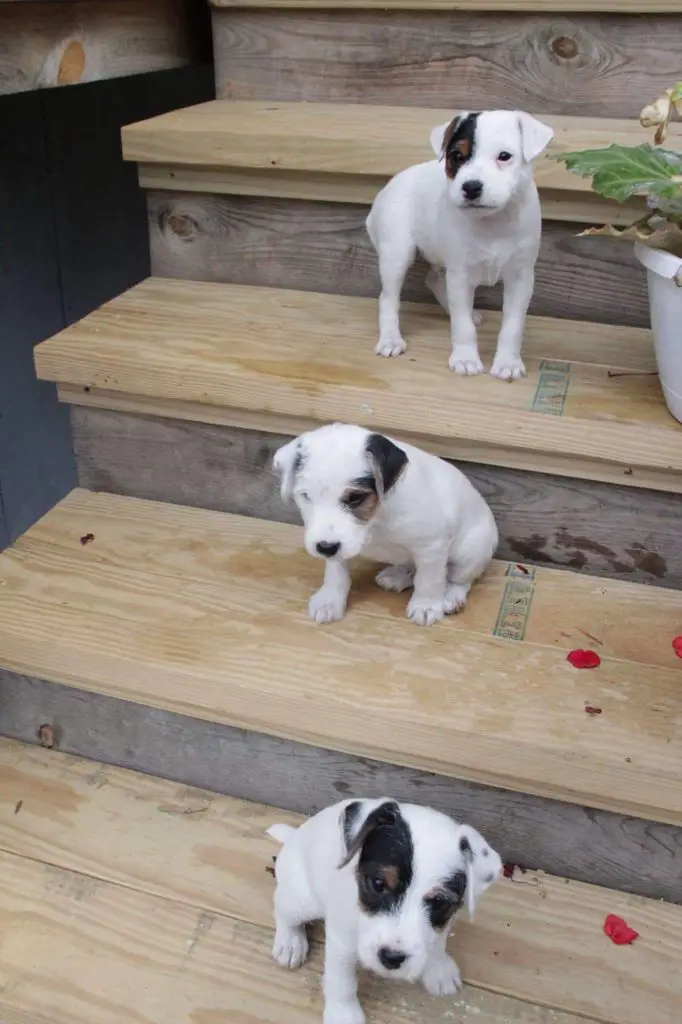
If an adult dog is still chewing, it’s time to look at other causes. These may include:
- Anxiety and separation anxiety
- Boredom
- Not enough exercise
If your pup is no longer teething, but is still chewing, some techniques that can help include:
Biving them a chew toy- Using repellent sprays on their favorite inappropriate chewing targets
- Addressing anxiety issues
- increasing play and exercise
Potty
House training is one of the most important things you can do for your puppy — and yourself.

In times past, it was thought that the most effective way of house training your puppy was to punish it for doing its business where it’s not supposed to. But a more effective, not to mention
Using a crate to potty train your puppy uses its natural instincts. No animal likes to be confined in the same space as its urine and feces.

The key to potty training is having a schedule. Feed your dog at the same time every day, and take them outside at regular intervals (Pet MD recommends once an hour) to eliminate. At the same time, use the crate to teach them how to “hold it.” One good rule of thumb is that a puppy can “hold it” one hour for every month of their age, so a two-month-old puppy can generally hold it for two hours.
For detailed instructions, see Pet MD’s article on potty training.
Elementary Education

If you have a Jack Russell, two things are for sure. First, you have to establish your authority. And second, you’re going to need to provide mental, as well as physical stimulation for your pup.
Basic obedience training is excellent for both of these.
But how old is old enough?
Most dogs are ready for basic obedience training at around eight weeks of age. Some may be ready a bit sooner, and others may take a bit longer. A good rule of thumb is that if a puppy is old enough to get excited when you offer a treat, then he or she is old enough to start working for that treat.

Start off with simple, intuitive tasks like “sit” and “come.”
Older pups may benefit from more formal training. You can find puppy training classes through breed clubs, your local AKC chapter, your local Humane Society, and some pet stores.
Are You Ready for a JRT Puppy?
A puppy is a joy, but it’s also a responsibility. And with a Jack Russell puppy, your life will never be boring. But it’s important to be prepared.
First, make your home ready. Puppy-proof your house, and make sure you’re ready for digging, jumping, barking, and all of those other trademark JRT behaviors.
Next, have a strategy in mind for potty training and crate training, if you want to do crate training.
Have a vet lined up, and know your pup’s vaccination schedule.
But, most importantly, open your arms and open your heart!
Featured Image: CC0 via Pxhere

